WU’s Collaboration with NGOs: Recovering Marine Resources and Developing Online Teaching Media for All
Walailak University has been establishing partnerships with NGOs to tackle global challenges in various areas, including climate change, inequality, the economic crisis, food and water insecurity, environmental problems, and others. WU believes that establishing collaboration or networking can have greater impacts on society and the environment.
The university has been engaging with NGOs, namely the Federation of Thai Fisher Folk Association, the Thai Sea Watch Association, the Hua Sai Local Fishery Association, and the Ban Nai Thung Local Fishery Association, to collaboratively conduct research projects and organize outreach projects for marine resource rehabilitation and raise awareness for Thai society on marine resource conservation, promoting sustainable fishery practices, unreported and unregulated fishing, destructive fishing practices, and other issues relating to marine stewardship.

One of the predominant projects is the Blue Crab Bank Project, which has been operating for more than five years. The blue crab has been considered livestock in Thai society, resulting in high demand both domestically and internationally. Thus, the local fishermen implemented unsustainable fishing practices, such as destructive fishing, unregulated fishing, or other unsustainable fishing practices, leading to a decrease in the blue crab population both in the Gulf of Thailand and the Andaman Sea. In order to tackle that challenge, the Blue Crab Bank Project was launched in collaboration between Walailak University and the Ban Nai Thung Local Fishery Association, an NGO organization working for the fishermen’s society in Nakhon Si Thammarat.
Upon establishing cooperation, Walailak University has been expanding the project to other places in Nakhon Si Thammarat and provinces in the south of Thailand in collaboration with other NGOs, both on research and outreach programs to build sustainability in the economy, society, and environment. The NGOs that have been engaged with Walailak University include the Federation of Thai Fisher Folk Association, the Thai Sea Watch Association, the Hua Sai Local Fishery Association, and so on. At the moment, there are more than 84 blue crab banks established by Walailak University. Blue crab is one of the income sources for the local fishermen and the local fishery start-ups, which generates income for them. Gaining income from blue crab fisheries can eliminate poverty and hunger, consistent with SDG 1: No Poverty and SDG 2: Zero Hunger. In addition, the increased population of blue crabs is consistent with SDG 14: Life below Water, in which Walailak University and the NGOs conserve marine animals that almost disappeared in the Thai Sea.
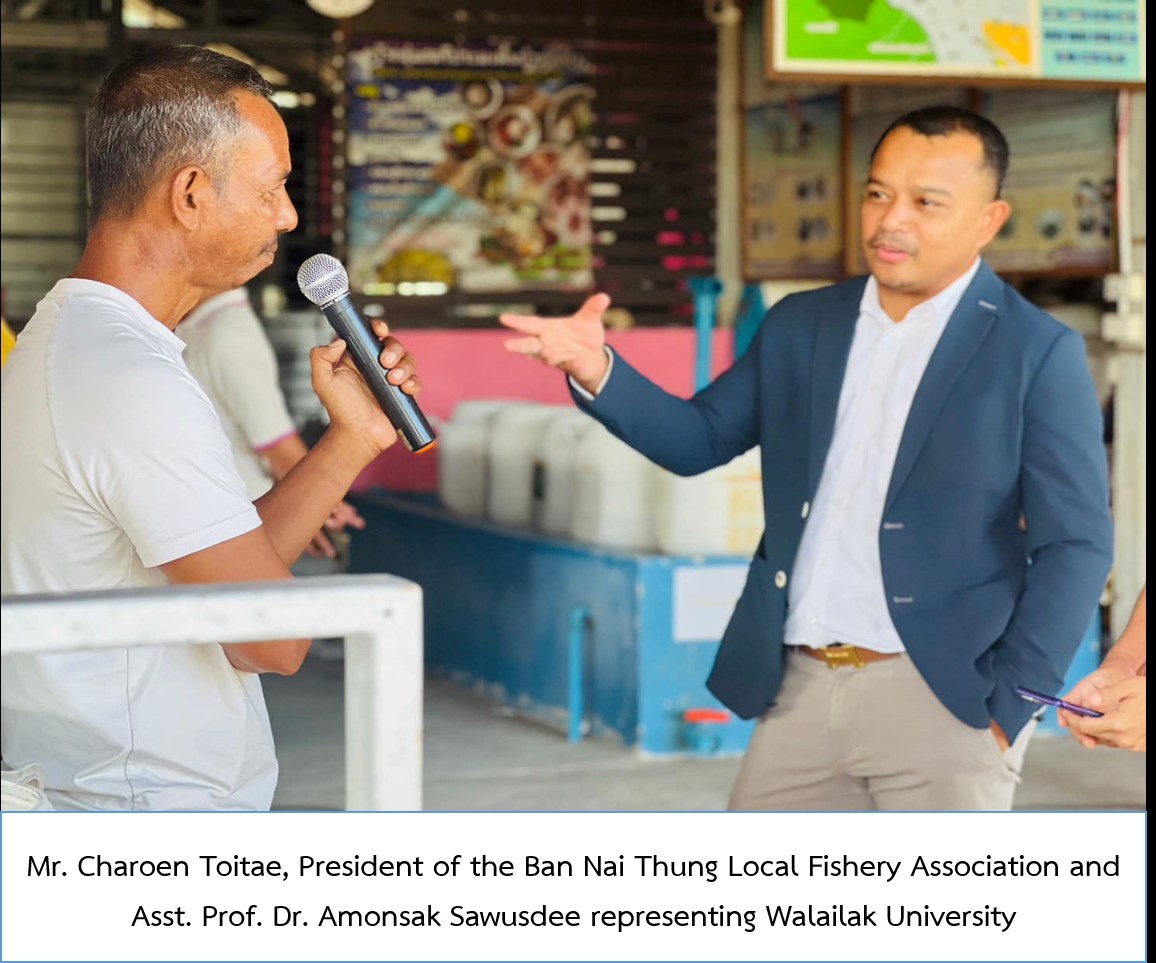
Regarding research conduct, Walailak University and the NGOs have been working on blue crab reservations in various ways, including discussing the best practices for sustainable marine management, exploring ecosystems and marine resources, assessing the diversity of marine life, building fish houses, adopting local wisdom, and so on.
In order to build sustainability into education, the students of Walailak University and the NGOs have been partnering to organize a student volunteer program titled “Releasing Young Blue Crabs to the Thai Sea”. This program is conducted every year by the WU students, allowing the students to increase the population of blue crabs in the sea. It also supports integrating sustainability into education.
Moreover, Walailak University established a student volunteer club for marine environment protection. The club is the “Marine Conservation Club,” with the mission to mobilize environmental protection activities both on and beyond campus. The club also raises awareness of marine resource protection in the Walailak community and communities at all levels.

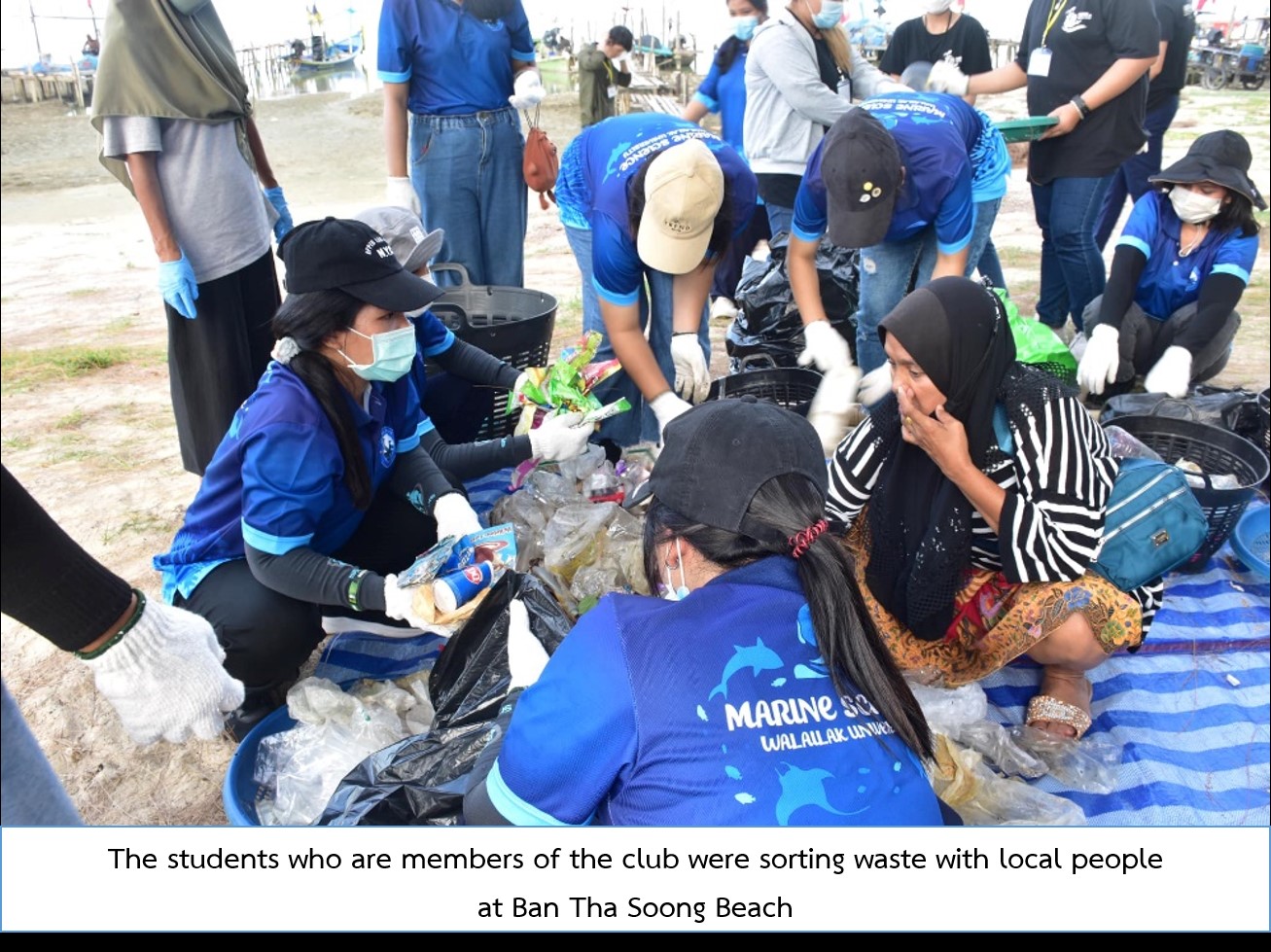
As for educational resource development, Walailak University collaborates with NGOs to disseminate knowledge through videos on YouTube that can be freely accessible to the public. The videos are on the YouTube channel titled “Coastal Resources Management and with Communal Participation (CoRMaC). The knowledge is about marine resource protection and others leading to sustainability, such as sustainable blue crab fishing, fish habitat building, illegal fishing practice prevention, and so on. In addition, the channel was awarded “Best Creative Media for Natural Resource and Environment Conservation” by the National Research Council of Thailand. To watch the videos, please click the link below:

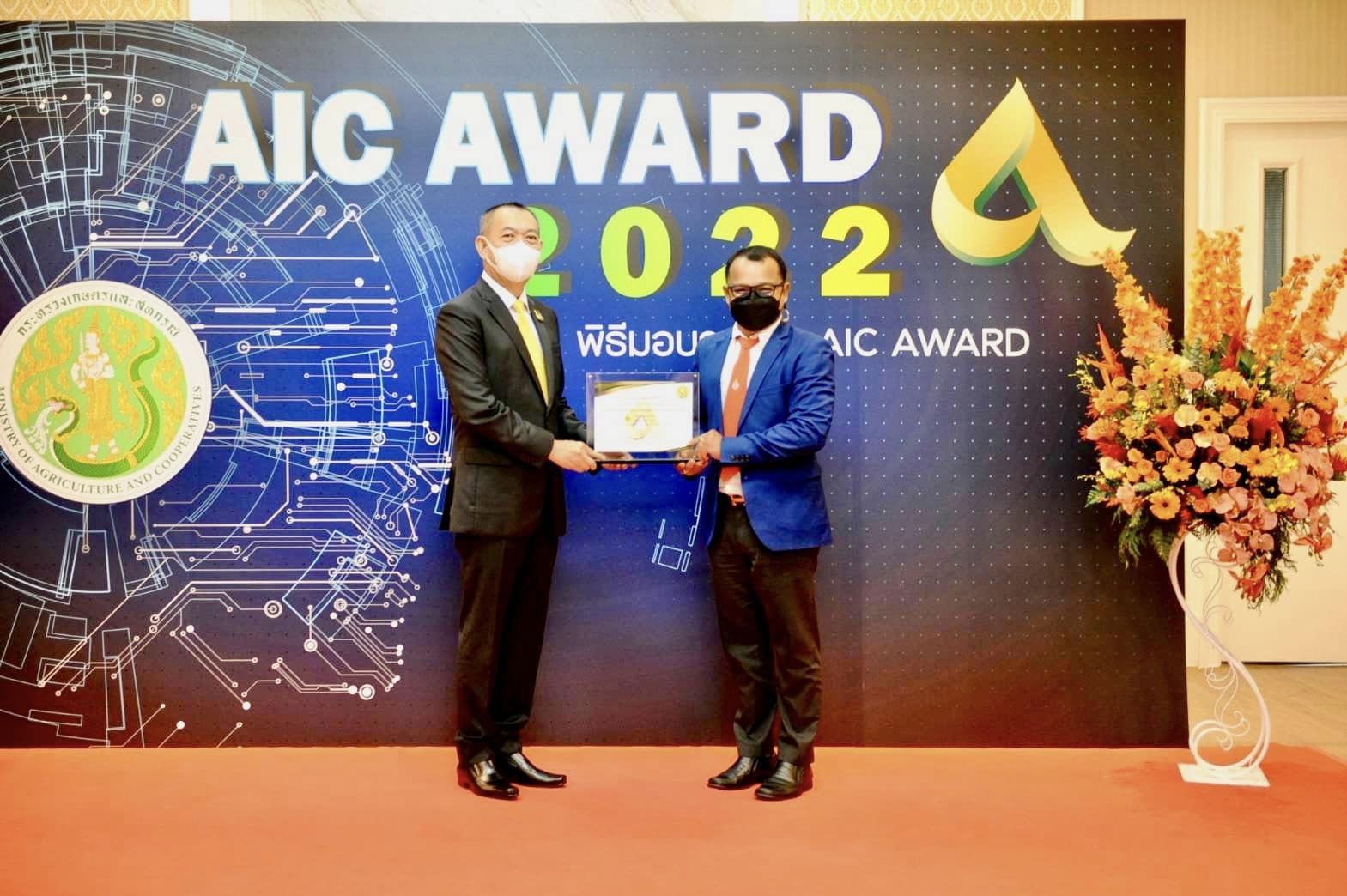
Asst. Prof. Dr. Amonsak Sawusdee won the first prize in the AIC Award 2022 competition as Best Innovation in Agritech for research and academic services on Restoration of Blue Crab Resources and Promotion of the Economy of Coastal Fishing Communities
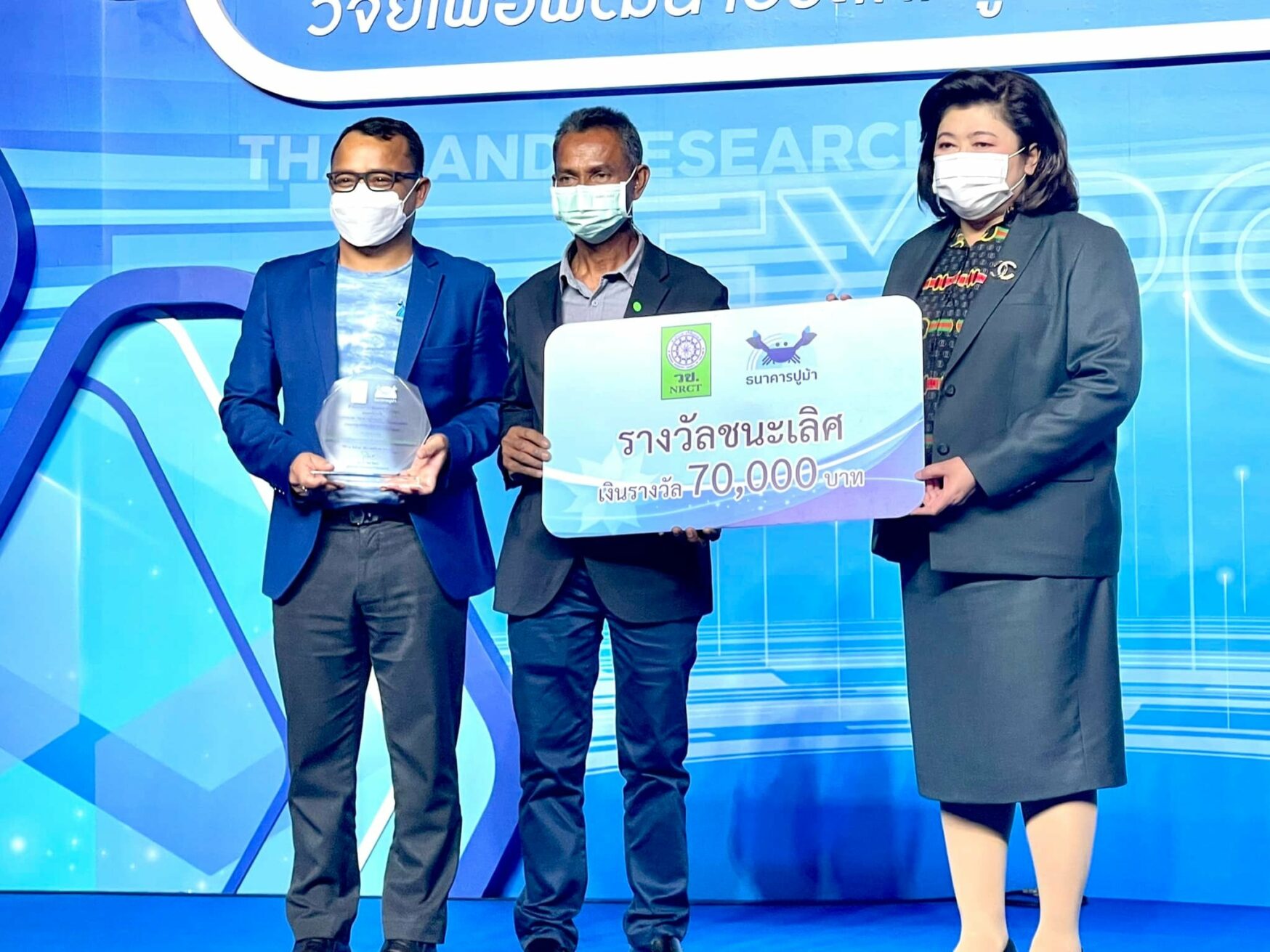
First Prize Type of Community Blue Crab Bank Learning Center, namely Ban Nai Thung Blue Crab Bank Learning Center
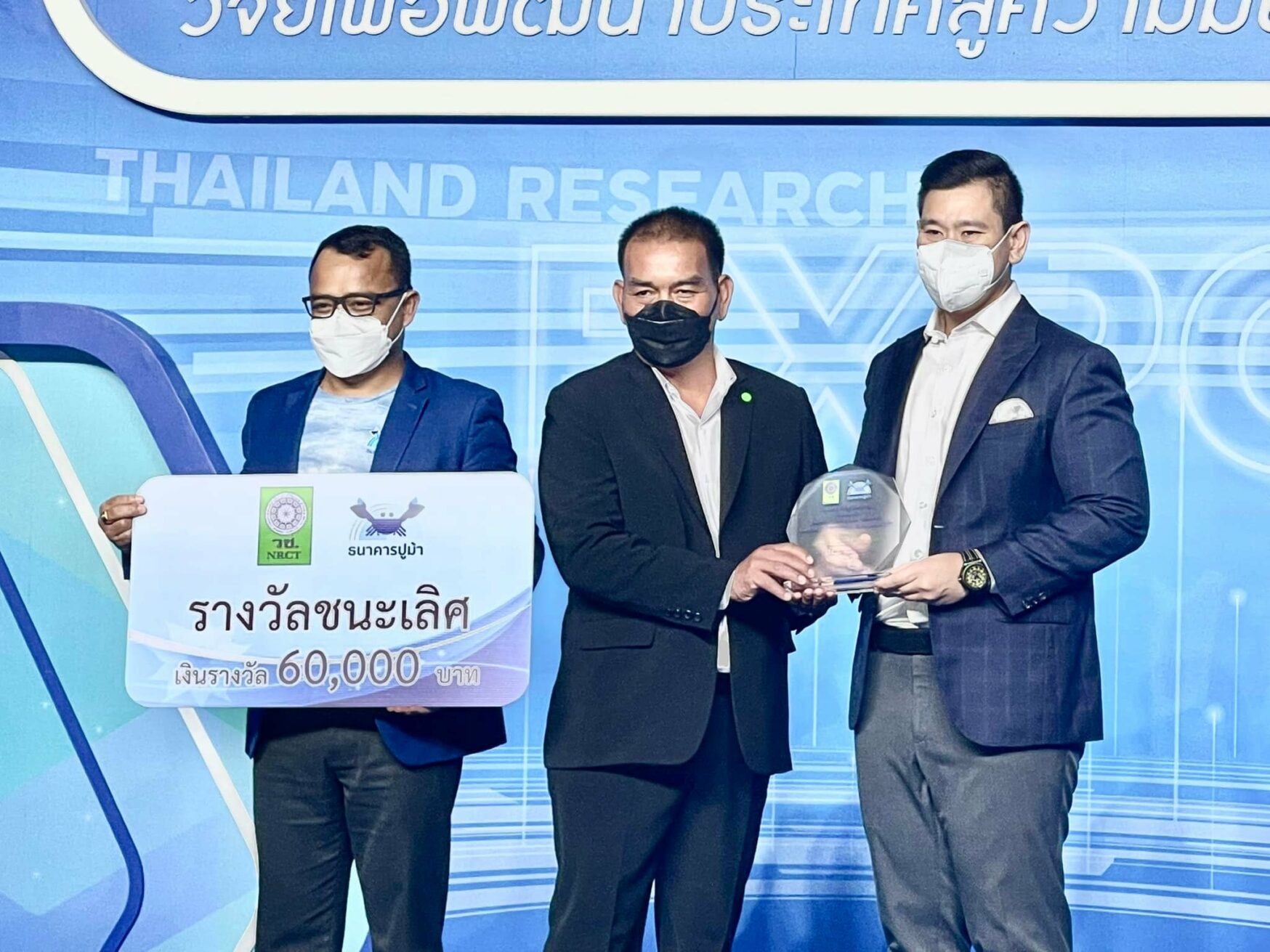
Winner of the “Best blue swimming crab learning resources”, Ban Hat Somboon Blue Crab Bank Learning Center
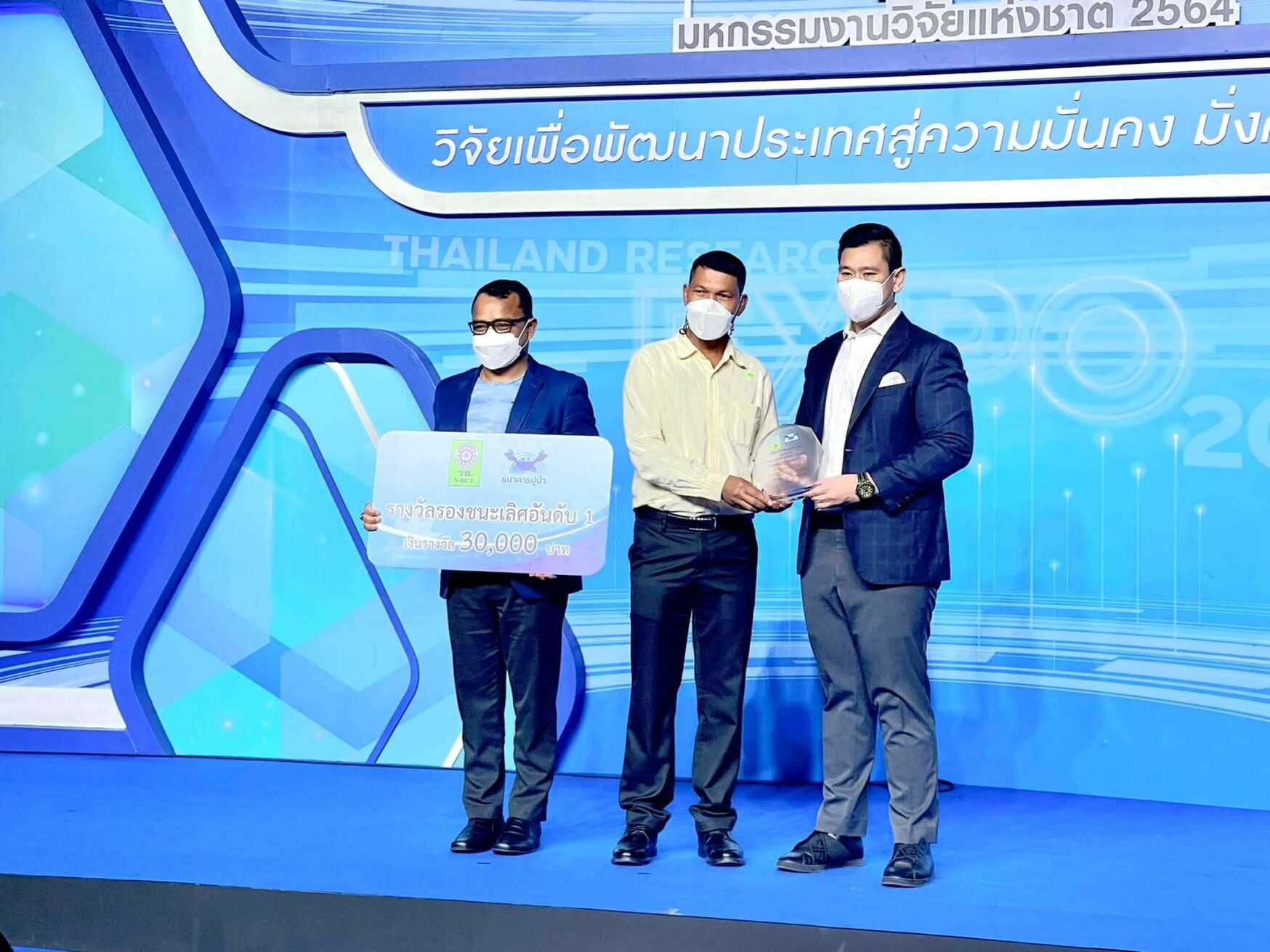
First runner-up award for the newly established community crab bank category, Ban Tha Phaya Crab Bank Learning Center
Goal 17: Partnerships for the Goals
Goal 14: Life below water
Goal 4: Quality education

